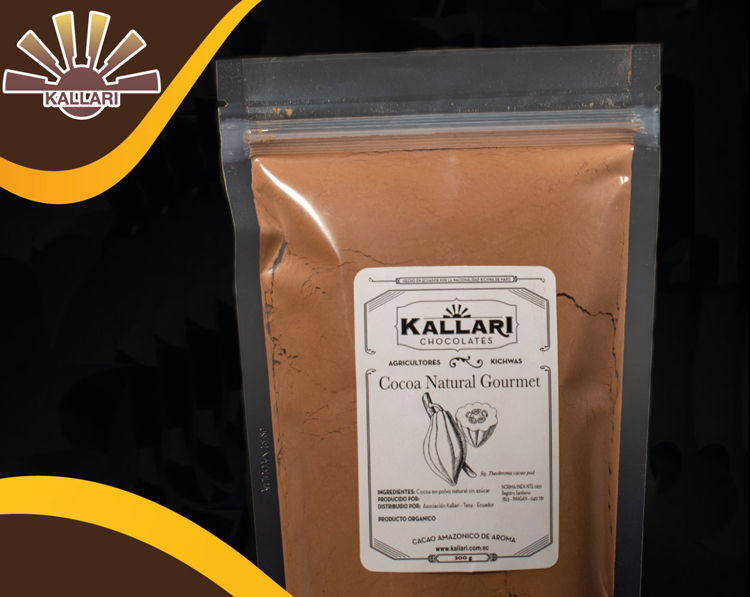Kiwcha association ships 440 tons of cocoa to Germany and Switzerland annually.
In the heart of Napo province, Ecuador, a remarkable story of empowerment and sustainable agriculture unfolds. Kallari, an association founded by Amazonian Kiwcha women 26 years ago, has become a symbol of opportunity and positive change for 2,500 individuals from 890 families in the region.
Nayeli Andi, responsible for customer service and sales at one of Kallari’s marketing points in Tena, proudly shares the impact the company has had on her family. Her parents are among the 890 producers collaborating directly with Kallari, a Kiwcha term meaning “beginning” in Spanish.
The journey began when these Kiwcha women sought a way to contribute to their households without compromising their responsibilities at home. Turning to their farmland, where daily tasks intertwined with household chores, they experimented with cultivating cocoa and coffee without the use of chemicals.
In 1997, with the support of foreign volunteers and the Jatun Sacha Foundation, dedicated to environmental research and care, they took their first steps. By 1999, the women, thinking like business entrepreneurs, were already seeing success with the cultivation of fine aroma cocoa.
In 2000, backed by a Canadian foundation and Jatun Sacha, Kallari improved cocoa quality and increased production, maintaining their commitment to chemical-free farming. The year 2006 marked a milestone when they exported 12 tons of cocoa, a journey that continues today with 80% of their production finding a market in Germany and Switzerland—exporting over 550 tons annually.
The remaining 20% of their cocoa is utilized for in-house products, gaining the brand’s identity and contributing to local businesses. This collaborative effort has earned Kallari seven certifications, both nationally and internationally.
Incentivized growers
Administrator Bladimir Dahua attributes their success to fair compensation for producers. Kallari purchases directly from producers in 21 communities in the Napo province, paying 30% more than the market value to incentivize producers. Local allies, such as the Magical Chocolate Factory of the Monteselva Group in Baños de Agua Santa, recognize the superiority of Kallari’s product, and pay $190 per quintal.
The additional funds generated from these partnerships are reinvested by Kallari into leadership workshops for women, passing down ancestral knowledge and providing inputs and tools to enhance the quality of life for indigenous families.
For Nayeli, the secure sale of cocoa from her parents’ farm facilitated her and her siblings’ education. Moreover, her parents have financial resources for daily expenses, as Kallari’s direct purchase is made in cash.
The Magic Chocolate Factory, owned by Guido Calderón and Pilar Medina, acknowledges Kallari for growing the best organic cocoa at 600 meters above sea level. This unique setting allows them to produce chocolates naturally, creating a connection between the consumers and the origin of the raw materials.
In addition to being a local showcase for Kallari, the Magic Chocolate Factory transforms cocoa into 70 different flavors using local products. This not only highlights the quality of the cocoa but also showcases the magic that occurs when the hands of producers enhance the standard of living for Kiwcha families in Napo.
In the heart of Ecuador, Kallari stands as a testament to the transformative power of sustainable agriculture, empowering women and communities while producing some of the world’s finest organic cocoa.


0 Comments